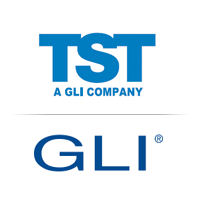Online Casino Security - How Secure Is It?
 Gambling is about risk. But it should be about reasonable risk. For example, you shouldn't have to worry about being physically robbed by thieves in a brick-and-mortar casino. The only risks you should be taking when gambling should be in the context of the games themselves, complete with being rewarded for your risk-taking accordingly.
Gambling is about risk. But it should be about reasonable risk. For example, you shouldn't have to worry about being physically robbed by thieves in a brick-and-mortar casino. The only risks you should be taking when gambling should be in the context of the games themselves, complete with being rewarded for your risk-taking accordingly.
Online gambling gives criminals opportunities they couldn't have dreamed of before the Internet. But proper attention to security and privacy can eliminate those opportunities. It behoves you to understand what goes into online casino security so you can choose online casinos wisely. Then you can enjoy the thrill of gambling in a controlled environment. That's where personal information remains private, transactions accurate, communications protected, and game events are truly random so nobody has an unfair advantage.
Keeping Information Invisible
 Personal information pertaining to your identity and financial accounts and instruments should never be accessible to those without a need to know. There can be no points of failure in either the conduit or storage of your personal information.
Personal information pertaining to your identity and financial accounts and instruments should never be accessible to those without a need to know. There can be no points of failure in either the conduit or storage of your personal information.
All electronic communication between your devices and an online casino must be encrypted, and should remain so if retained on their systems to facilitate subsequent transaction processing. That begins with using the SSL (Secure Sockets Layer) protocol between your browser and online casino servers. You should be wary of any site that doesn't brag about using SSL. Furthermore, since there are different strengths of SSL, you should favour sites using stronger SSL. For example, 256-bit SSL is better than 128-bit SSL.
Also, be aware that the SSL protocol is being used only when the site URL begins with 'https'. A URL beginning with merely 'http' (without the trailing 's') indicates the completely insecure HTTP protocol is being used, which can be easily intercepted and interpreted by even unsophisticated hackers. Periodically check the address bar of your browser and disconnect if you ever see 'http' instead of 'https' when accessing a site, especially when supplying financial information. Then inform the site that you'll not be visiting them until they can demonstrate they've plugged that hole.
Of course, once your information has safely made it to their servers, it needs to stay safe. That means sites should keep sensitive personal information encrypted in their databases, and their site should be safe from web server attacks that can trick servers into surfacing information they shouldn't. These are not easy matters for potential customers to ascertain. At a bare minimum, an online casino site should present a detailed security policy to show they've put sufficient thought into such matters. If you can't find such policies on the site, insist upon them from customer service, and flee if they refuse to provide them.
Piecing Together Events After the Fact
Better sites keep accurate logs of as many transactions and interactions as possible. When did information arrive? When did a deposit or withdrawal occur? From where were they initiated? Was the IP address associated with the event reasonable given past accesses?
Such Information is vital in the unlikely event of a breach, as well as to identifying overall system weaknesses over time. Be sure the online casinos you visit acknowledge they carefully maintain meticulous logs.
Transparency via Independent Auditing
 Anyone can claim they're above board. But genuinely transparent organisations welcome ongoing third-party evaluation to remain confident they're not unintentionally giving themselves a free pass in important areas like security.
Anyone can claim they're above board. But genuinely transparent organisations welcome ongoing third-party evaluation to remain confident they're not unintentionally giving themselves a free pass in important areas like security.
When it comes to security accreditation, nothing beats London-based eCORGA (e-Commerce and Online Gaming Regulation and Assurance). This internationally recognised testing agency ensures that online casinos meet and exceed fine-grained fairness and safety standards. Testing and monitoring continuously, eCORGA certification guarantees site compliance. They'll also mediate disputes between sites and customers, giving you an extra measure of comfort. Always look for eCORGA approval when you gamble online.
RNG and Software Verification
 You wouldn't try replacing a flat tire on an inclined surface, or leave your doors and windows wide open as you slept. But that's roughly the situation you'd be in trying to gamble in an unfair environment. Fair play demands truly random RNGs (random number generators), the absence of software back doors, and the eradication of bugs disruptive to smooth and fair play.
You wouldn't try replacing a flat tire on an inclined surface, or leave your doors and windows wide open as you slept. But that's roughly the situation you'd be in trying to gamble in an unfair environment. Fair play demands truly random RNGs (random number generators), the absence of software back doors, and the eradication of bugs disruptive to smooth and fair play.
TST (Technical Systems Testing) is the arm of GLI (Gaming Laboratories International) used by top online casinos to stress and test their gaming software. TST certification means a site's software offers random, fair games without software vulnerabilities that could be leveraged by unscrupulous entities. The kind of validation provided by TST is especially important for new software.
It Has to Be You
 Regardless how thorough the security procedures of a site practices are, or the quality of external accreditations verifying them, it does you no good if it's easy for others to pretend they're you at login time. That's why better sites work harder to understand whom they're dealing with early in the relationship. It may seem like an inconvenience at the time, but being asked to provide images of utility bills, credit cards, and government ids when you get started is actually an act of considerable respect for you and your information.
Regardless how thorough the security procedures of a site practices are, or the quality of external accreditations verifying them, it does you no good if it's easy for others to pretend they're you at login time. That's why better sites work harder to understand whom they're dealing with early in the relationship. It may seem like an inconvenience at the time, but being asked to provide images of utility bills, credit cards, and government ids when you get started is actually an act of considerable respect for you and your information.
Another aspect of impersonation protection is a site's privacy policy. Be sure a site has one that guarantees they'll not be sharing identifying information with others, especially in ways that facilitate identity theft. Bring your business elsewhere whenever feeling discomfort about an online casino's privacy practices.



